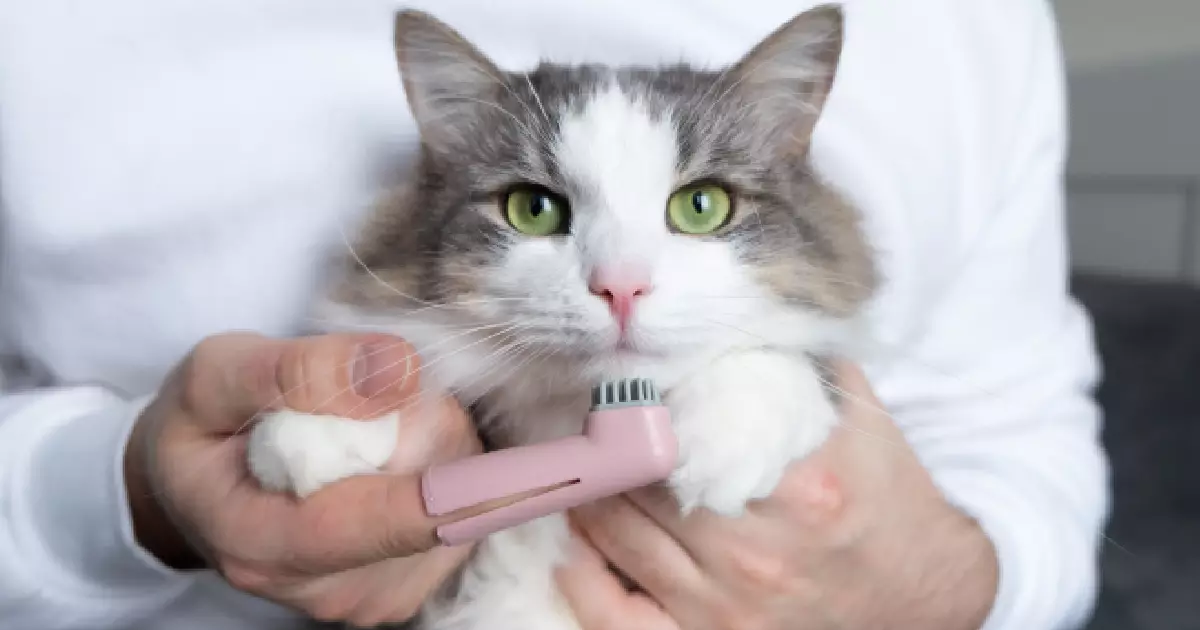February, recognized as Pet Dental Care Month, serves as a crucial reminder for cat owners about the significance of oral hygiene in pets. Just as humans invest time in dental care to prevent oral diseases, our feline companions require the same diligence to maintain optimal health. Many cat owners underestimate the impact of their cat’s dental hygiene, which can lead to a variety of issues if neglected. From tartar accumulation to severe gum disease, the ramifications of poor dental care can extend beyond the mouth, potentially affecting the heart, liver, and kidneys.
Regular dental care for cats is crucial not just for maintaining clean teeth, but also for identifying signs of underlying health issues early. By establishing a consistent dental hygiene routine, cat owners can contribute to their pet’s longevity and overall happiness. Ultimately, proactive dental care sets the foundation for a healthier life, reducing anxiety associated with future veterinary visits and ensuring peace of mind for pet owners.
1. Prevention of Oral Diseases: Just as humans face oral health challenges, feline friends are not immune to gum disease and tooth decay. Engaging in regular brushing can significantly reduce plaque and tartar buildup, keeping your cat’s teeth healthy and avoiding extensive dental work down the line.
2. Fresh Breath: One of the most rewarding aspects of dental care is the improvement in your cat’s breath. Who doesn’t enjoy the comforting nuzzle of their cat? By ensuring regular dental hygiene, those sweet moments can come with fresher breath, elevating the joys of feline companionship.
3. Early Health Detection: Dental examinations during brushing are opportunities to spot potential health issues. As you interact with your cat, you can easily observe any abnormalities, such as swollen gums or loose teeth. This early detection can lead to timely interventions, significantly improving outcomes.
4. Enhanced Quality of Life: A cat free from dental pain is a more vibrant and playful cat. By addressing dental issues, you increase your likelihood of seeing your cat exhibit affection, engage in play, and maintain a healthy appetite—connections that highlight the bond between pet and owner.
To facilitate an effective dental care routine, there are key items that every cat owner should consider:
– Cat-Specific Toothbrush: Look for small, soft-bristled toothbrushes designed for feline use. A variety of toothbrush designs, including finger brushes, can make the process more agreeable for your cat.
– Cat-Friendly Toothpaste: It’s imperative to avoid human toothpaste, as it contains xylitol and other harmful ingredients for cats. Instead, choose specialized cat toothpaste, ideally in appealing flavors like poultry, to encourage your cat’s cooperation during brushing.
– Dental Treats: Incorporating dental treats into your cat’s routine not only serves as a reward but can also actively reduce tartar buildup. Look for products with textures designed to promote oral health.
– Dental Wipes: For particularly resistant cats, dental wipes can provide a gentle alternative to brushing. They are designed to clean teeth effectively while remaining easy to use.
– Water Additives: Consider adding veterinary-recommended oral care solutions to your cat’s water. These additives can support ongoing dental health by neutralizing harmful bacteria.
Starting a dental care routine can feel overwhelming, but with patience and gentleness, the process can become a positive experience for both you and your cat. Here’s how to gradually ease your cat into the habit:
– Familiarization: Begin by letting your cat sniff and taste the toothpaste. Positive reinforcement, such as treats, can help create a welcoming atmosphere during these initial interactions.
– Gradual Mouth Handling: Start by gently stroking your cat’s cheek and progressing to lifting their lips. This gradual approach can help desensitize them to touch around the mouth.
– Initial Brushing: Once your cat is comfortable, you can introduce brushing. Starting with just one or two teeth, gradually increase the area you clean as your cat grows accustomed to the process.
– Celebrate with Rewards: Always provide praise and a treat after each session to reinforce positive behavior. These rewards can turn dental care into a bonding experience.
Despite your best efforts, some cats may resist dental care. If your kitty becomes combative at the sight of dental tools, consider using alternatives like dental wipes or engaging toys that clean teeth during play. Additionally, professional veterinary cleanings provide an effective way to ensure thorough cleaning, allowing for personalized advice regarding your pet’s specific dental needs.
It’s important to remember that establishing a dental care routine for your cat may take time. The journey requires patience and persistence, as change often unfolds slowly. By incorporating regular dental care into your cat’s life, you’ll not only enhance their oral health but also contribute significantly to their overall well-being. This February, in honor of Pet Dental Care Month, embrace the opportunity to prioritize your cat’s dental health; your furry friend will undoubtedly appreciate the loving efforts!

